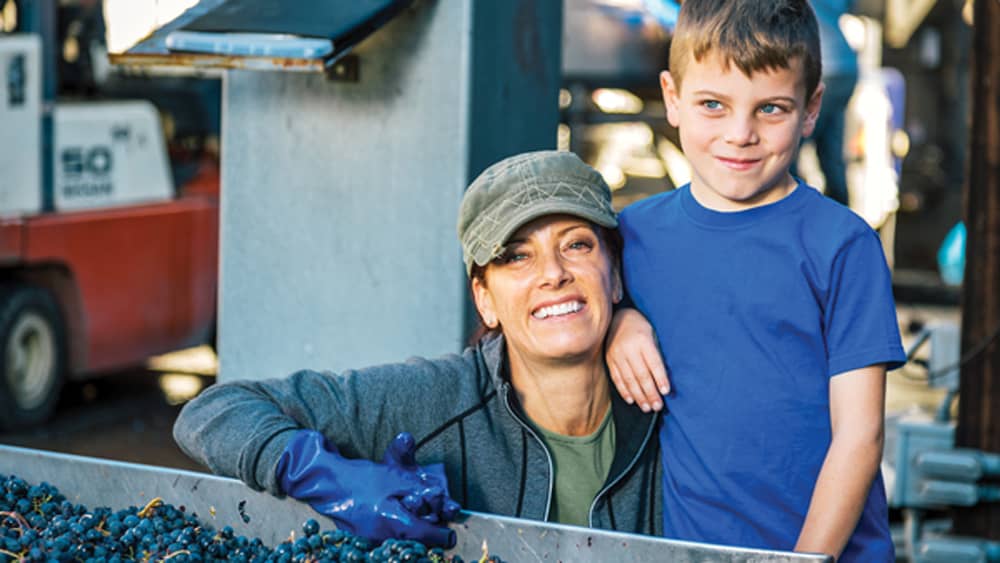
Winemaker mom Shelly rafanelli with her son, Caden, during harvest season. [Photo courtesy of A. rafanelli Winery]
“One day I was working the grape harvest and the next day I had a baby,” says Abby Watt, winemaker for Medlock Ames in Healdsburg. She’s recalling the 2021 harvest, when she had to suddenly switch gears from running the show at the winery to delivering her first child, a daughter, on Nov. 7.
“Though I could’ve stopped sooner, I worked right up until a few days before she was born,” says Watt. “My midwife thought I should stop working sooner. She said, ‘Your body can’t relax until you stop working.’ But I had a healthy pregnancy, and I wanted to see the vintage through, even though the team at Medlock Ames encouraged me to end work sooner. My boss, along with my crew, provided lots of support, so I could take it easy. It’s hard to let go of the expectations I put on myself, as you just don’t know how life-changing it is to have a child. But I know my limits, and I didn’t do anything that would risk the life of my child.”
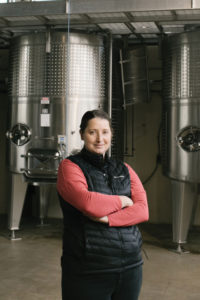
Women who juggle the duties of winemaker and mother find the delicate balancing act both challenging and rewarding.
“My son is now 12 years old and he’s just awesome and started doing some work in the winery this year,” says Shelly Rafanelli, 48, winemaker for Rafanelli Winery in Dry Creek Valley. “I’m the proud mom, hoping he will want to work in the family business when he grows up. He and my sister’s daughter would be the fifth generation of the Rafanellis to carry on the business. The biggest motivator for me is to preserve our heritage and maintain our traditions.”
Consulting winemaker Ashley Herzberg, 37, works with a handful of wineries, including Amista Vineyards. She is raising two children, an 11-year-old girl, and a 9-year-old boy, in Healdsburg, where she says a lot of affluent moms get to make the choice to not work and be home more. “I commend them for that, but it would never be fulfilling for me. It’s good for my kids to see that I’m working and that I can provide for us. I work really hard.”
Better late than never
Motherhood came late to Marimar Torres, vintner and founder of Marimar Estate Vineyards & Winery in Sebastopol. She grew up in Spain in the Torres family wine business, then married an American in 1975 and moved to California. “We were married four years. He didn’t want children, but I did. After we divorced, I told myself I had six years to find someone to have children with, but that didn’t happen,” says Marimar. “I’d given up believing I would ever have children.”
Then she went on a ski trip and met someone special. “We didn’t get married, but my daughter, Cristina, was the result of that relationship. So I was definitely going to be a single mom and a winemaker mom. From the moment I found out I was pregnant, at the age of 42, I couldn’t believe it. I remember crying with joy when I left the doctor’s office. I was just elated. Cristina was born when I was 43.”
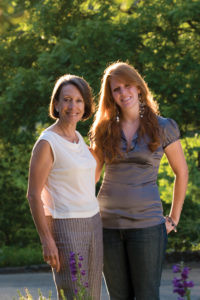
Today, almost 50 years after Franco died and Spain returned to democracy, that country still does not offer the degree of freedom enjoyed by women in the United States, she says. “Things have changed there for the better in many ways, however.”
One positive change for women is maternity leave. According to ShieldGeo, now part of Velocity Global, a global work platform, the minimum statutory maternity leave in Spain is now 16 weeks.
Child care there, however, is another matter. “Having a place to leave your children while you’re at work? This is really better organized in the U.S., compared to Spain,” says Marimar.
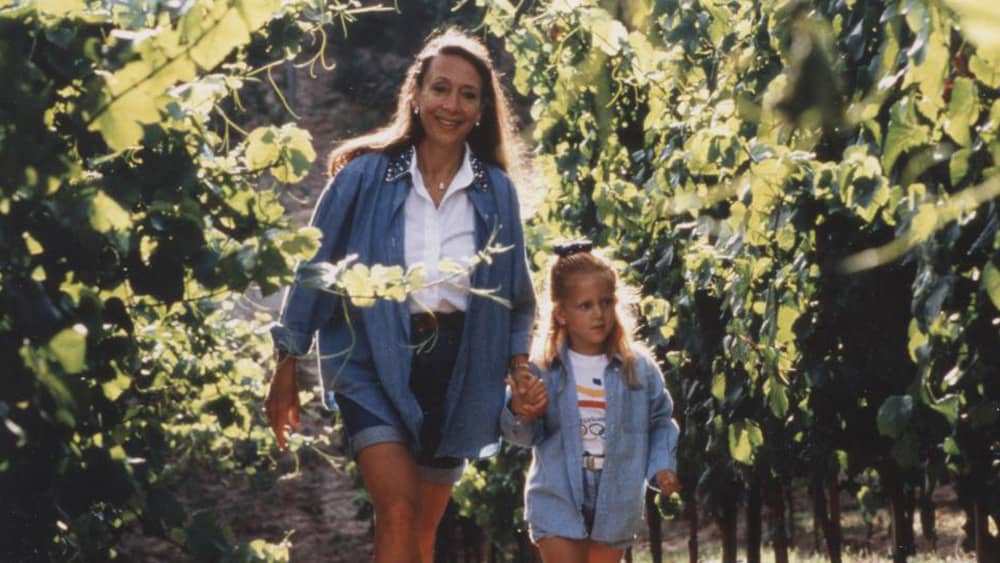
Marimar never expected Cristina to follow in her footsteps. “Because Cristina saw how hard I worked, I never expected her to follow my path, but she says just the opposite,” says Marimar. “She saw me with such dedication and joy at achieving results, that she always thought she would take over where I left it. And so the business, which in the Torres family has always been handed down from father to son, for the first time will go from mother to daughter.”
Raising wine kids
In any career, says Herzberg, parents must be mindful of their behavior in front of their small children. As a winemaker, she frequently conducted sip-and-spit tastings around her young daughter. “She was a very observant 2-year-old and had seen me do that countless times,” she explains. “One day I picked her up from preschool and the teacher said my daughter took sips of juice from her sippy cup that day and then spit them out on the floor. She wasn’t able to talk much then, so she couldn’t explain why she was doing it. But she had watched me spit out wine over and over.”
Herzberg was working full-time for a winery when the sippy cup episode occurred. “I loved my job, but once my daughter was born I felt I wasn’t being fair to my employer or to her. That’s why being a consulting winemaker gives me a lot of leeway. And my kids do get a more intimate view of what I do every day because we roll our whole life into making wine.”
Rafanelli’s son, Caden, actually began “working” at the winery when he was still a preschooler. “He would spot leaks in wine barrels that were at his eye level, and he even took people on vineyard tours. He was about 4 at that time, and visitors were delighted to follow him and ask him questions. My husband is a vineyard manager, so our son knew every piece of farm equipment on the property from the time he was little.

One of the biggest challenges for women like her, says Herzberg, is that winemaking is Mother Nature. “So you can’t just walk away from it, and I can’t ask anyone else to take care of it for me. There can be long hours, and that’s a lot of hours away from home. On the flip side, I get to bring my children with me to work frequently, and we get some bonding time, enjoying how beautiful it is to be in the vineyards, and watching the ebb and flow of farming.”
Still, she says, there can be a lot of controlled chaos in her life. “When you are the primary caregiver to two kids and have a full-time job and clients who need you, it’s a giant jigsaw puzzle of many pieces. You can’t always get to all the things you want to do in one day, so you lean in and embrace it. As a bit of a perfectionist, it’s a hard lesson for me to learn, but perfection isn’t the goal. It’s a huge difference now that the kids are older and are able to help me. They can be very useful at the winery.”
Familiarizing their children with the wine industry and grape-growing is a common denominator among winemaker moms. “I think the best part will be my daughter growing up alongside such a great industry, and being able to take her out to the vineyards and show her what I do for a living,” says Watt, 32. “Fortunately, throughout my career, I have observed and worked with several winemaker moms who effortlessly achieve the work-life balance while raising a family, which is very encouraging.”
Changing the mindset
Herzberg remembers feeling some discrimination from others in the wine industry before she became a mother, but not really since then. “I don’t believe I was not considered as a candidate for a job or for a promotion because I was a woman or a mom, and in fact, have felt the opposite. I can’t speak for the whole industry, but it seems women winemakers are preferred because women tend to have better palates. I had one bad boss before my first child was born, but great bosses ever since.”
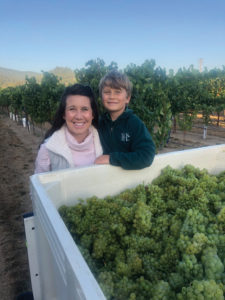
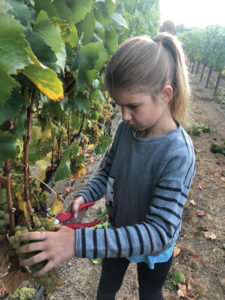
Before she became a mom, Rafanelli experienced some discrimination among others in the industry. “I was the boss’s daughter, so I was following in the footsteps of a successful father. People looked at me like I was getting a free pass. But I had to work from the bottom up to prove myself.”
Over the years she has seen the industry evolve more in favor of women, though it still tends to be a male-dominated field. “It’s changing, with many more women in all facets of the industry. But when we sign on to become a winemaker there are times of the year we can’t take off. I think companies are doing better, however, at accommodating winemaker moms. If you get the job done, that’s all that matters. Wineries in the Dry Creek Valley tend to be more family-based than corporate, and I know many moms who bring their kids to work to help during those busy times. I don’t know of any winery that frowns on that.”
Watt says that as a very new mother she has not yet experienced any discrimination because of it and has only had positive experiences with everyone at Medlock Ames. “Unfortunately, the social belief in any industry is still that women can’t be devoted mothers while remaining successful, let alone progress in their careers. I put more pressure on myself because of this and remember briefly feeling guilt when I first found out I was pregnant, knowing that I could potentially miss a portion of the harvest. However, I was fully supported through the entire journey, and I feel incredibly fortunate as I realize not everyone’s employer is that encouraging of pregnant women and working mothers.”
Disappointing expectations
When Watt was 28 weeks pregnant, she was visiting another winery’s tasting room, and a customer (also in the industry) joked about how their winemaker would be having a baby during harvest and that there should be some rule that these women be more careful during the months of January through March.
“Needless to say, I was frustrated and uncomfortable standing there with a baby due at the end of harvest,” says Watt. “I also experienced some disapproval from people outside of work when they found out I was pregnant and still choosing to work. Before even becoming a mother, there was an expectation that I shouldn’t be working, which was disappointing.
“I’m extremely fortunate to be working for a company that encourages my career development and has one of the most progressive maternity policies in the industry,” she adds. “I hope the industry as a whole steps up and provides more opportunities to new and existing winemaker mothers.”
Women in Wine: By the Numbers in California
Women winemakers who play a leading role among California’s 4,200-plus bonded wineries make up approximately 14% of those winemakers, according to a 2020 study conducted by Santa Clara University. Since a similar study released by the university in 2011, this represents a 10% increase in women winemakers around the state. The university says a “best guess” scenario for expected progress in women winemakers throughout the state predicts that 21% of winemakers will soon be women.
Anecdotally, a frequently quoted statistic by journalist William F. Heintz, who wrote two books on the history of Napa Valley before he passed in 2012, is that 10% of winemakers in California in 1890 were women. It’s believed that most of these women became winery owners following the death of their spouses, and many were assumed to then be active in the process of winemaking.
Experienced Winemakers Who Also Answer to “Mom”
The winemakers interviewed for this article have a wealth of industry experience and try to keep a healthy balance between their busy careers and raising children.
Ashley Herzberg
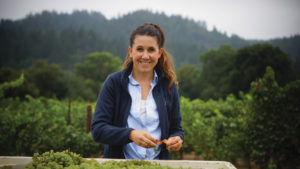
With a degree in chemical engineering, Ashley Herzberg originally wanted to attend medical school. But she made a sudden move into Sonoma County vineyards, first working a harvest in a winery lab. She later joined Owl Ridge Winery, a custom-crush facility, as a lab tech and was promoted to lab manager. At Mauritson Winery she worked as an enologist and then assistant winemaker. Ten years ago she went into consulting, becoming the winemaker for several small family-owned local wineries, including Amista Vineyards.
Shelly Rafanelli
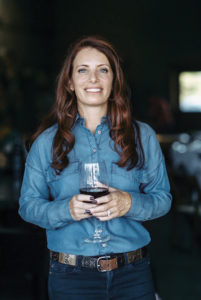
A member of the fourth generation to run Rafanelli Winery, Shelly Rafanelli graduated from Cal Poly in San Luis Obispo with a major in agriculture business and a concentration in marketing. She went on to take wine courses at the University of California, Davis. She began working at the family winery while still in middle school, helping out in the cellar and on the bottling line, and later moved into the winemaker role, where she continues today.
Marimar Torres
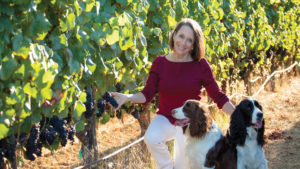
In the business since she was 19, Marimar Torres grew up in Spain as a member of the Torres wine family, which has been growing grapes in that country since the 17th century. As a young woman, she began traveling with her father to America to promote the family wines, and eventually settled in San Francisco, where she became the brand ambassador for Torres wines. She founded her namesake winery in Sonoma County in 1983, purchasing land in the Green Valley of Russian River Valley and overseeing her first crush of Chardonnay and Pinot Noir in 1992.
Abby Watt

Abby Watt entered the wine industry in her native New Zealand shortly after leaving high school and enrolling in college. In California, she previously worked to produce several Sonoma County labels, including Kosta Browne and Peay Vineyards, and in August 2021 was named winemaker for Medlock Ames Winery, succeeding Ames Morison, who has assumed a new role with the winery.
Author
-

Jean Doppenberg is a lifelong journalist and the author of three guidebooks to Wine Country.
View all posts



